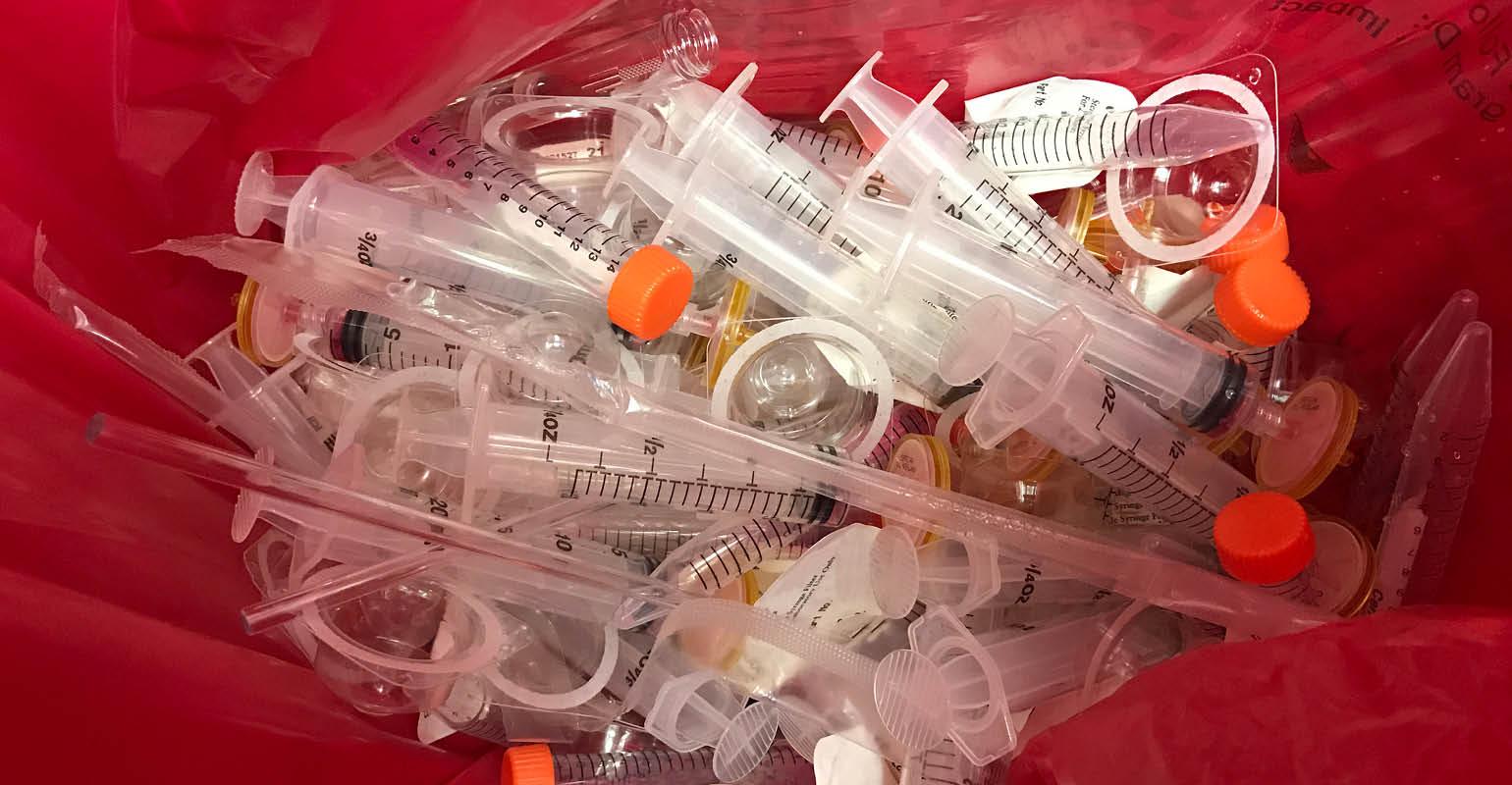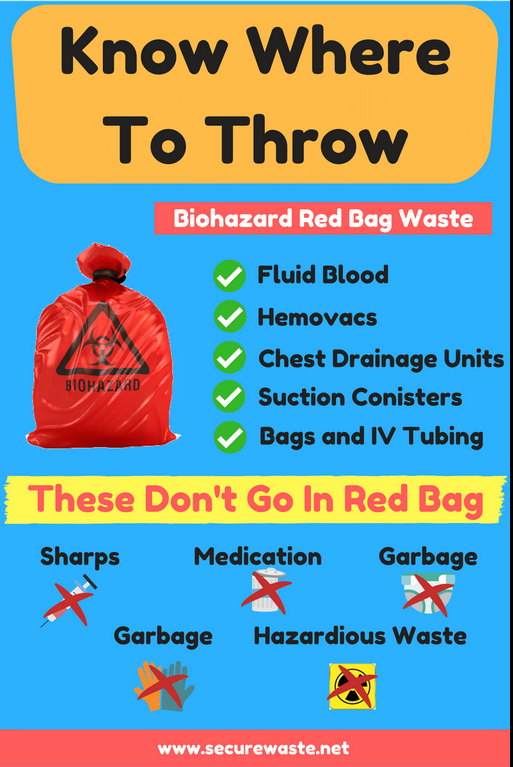Safeguarding Health: Professional Medical Waste Removal Services for a Tidy Setting
Safeguarding Health: Professional Medical Waste Removal Services for a Tidy Setting
Blog Article
Keep Ahead of Rules: Professional Suggestions on Medical Waste Disposal
In a globe where the healthcare market is frequently progressing, it is important for clinical centers to remain in advance of guidelines when it comes to the proper disposal of clinical waste. From recognizing the various classifications of clinical waste to executing the best collection and segregation techniques, this conversation will certainly provide useful understandings and workable pointers to assist centers remain in advance of regulations in the ever-changing landscape of clinical waste disposal.
Understanding Clinical Waste Categories
Comprehending clinical waste categories is vital for proper disposal and management in medical care centers. Clinical waste describes any waste produced by medical care tasks that may present a hazard to public health or the setting. It is crucial to categorize clinical waste properly to ensure its safe handling, disposal, transportation, and treatment.
There are numerous groups of clinical waste that medical care facilities need to be accustomed to. One of the most common classifications include contagious waste, pathological waste, sharps waste, pharmaceutical waste, and chemical waste. Each category has certain guidelines and guidelines for its correct monitoring and disposal.
Pathological waste refers to human tissues, organs, or body components that require unique handling and disposal. Drug waste comprises run out, unused, or polluted drugs that need cautious handling and disposal.
Remaining Up-To-Date With Regulatory Changes
Remaining existing with regulative adjustments is crucial for medical care centers to ensure conformity and correct administration of clinical garbage disposal. medical waste removal near me. With guidelines frequently developing, it is vital for medical care centers to stay up-to-date to prevent charges, penalties, and prospective injury to the atmosphere and public health
To remain ahead of regulative changes, healthcare centers should establish a system for surveillance and tracking updates. This can be done by subscribing to regulatory e-newsletters, participating in workshops and seminars, and proactively getting involved in sector associations. Furthermore, facilities must mark a personnel or group accountable for remaining informed and distributing information to relevant stakeholders.
Routine interaction with regulative companies is additionally essential. Health care facilities must establish partnerships with neighborhood, state, and federal companies to guarantee they are mindful of any adjustments in laws that may impact their waste administration techniques. This can be done with regular meetings, involvement in public comment periods, and proactive involvement with regulative firms.
Additionally, healthcare centers need to think about partnering with waste monitoring firms that specialize in medical waste disposal (medical waste disposal services with WasteX). These firms are frequently skilled in the most up to date regulations and can give support and support to guarantee compliance
Applying Appropriate Collection and Segregation Approaches
To properly take care of clinical waste disposal, medical care centers have to develop correct collection and segregation approaches according to regulatory guidelines. Implementing these methods makes certain the risk-free handling and disposal of potentially dangerous materials, safeguards the environment, and decreases the risk of infections and injuries to health care workers and the basic public.
Appropriate collection and segregation techniques involve using designated containers and labeling systems. Medical care centers ought to supply plainly identified containers for various sorts of medical waste, such as sharps, transmittable waste, pharmaceutical waste, and non-hazardous waste. These containers ought to be color-coded and clearly significant to avoid confusion and promote very easy identification.
Furthermore, healthcare centers need to train their staff on the proper procedures for accumulating and setting apart medical waste. This includes educating them on the various kinds of waste, the suitable containers to use, and the importance of following policies and standards. Normal training sessions and refresher courses ought to be performed to guarantee that team member continue to be current on finest methods.
Moreover, healthcare centers ought to develop a system for routine collection and disposal of clinical waste. This may entail partnering with qualified waste management firms that focus on clinical waste disposal. These firms will make sure that the collected waste is moved and gotten rid of in conformity with regulative needs.
Choosing the Right Disposal Approaches

Incineration is just one of the most effective and typical techniques for taking care of certain sorts of clinical waste, such as pathological waste and sharps. It entails the regulated burning of waste at high temperatures, decreasing it to ash. Incineration can release damaging contaminants into the air and add to air pollution.

Chemical treatment entails the usage of chemicals to sanitize and counteract the waste. Microwave treatment utilizes microwave power to warmth and disinfect the waste.
Guaranteeing Conformity Through Documentation and Training
After very carefully considering the suitable disposal techniques for clinical waste, medical care centers must guarantee conformity with guidelines and decrease ecological influence by applying reliable documents and training treatments. This action is critical in keeping a secure and lasting environment for both healthcare employees and the basic public.

Medical care employees that take care of clinical waste should receive ideal training on waste partition, taking care of, and disposal procedures. By providing extensive training, healthcare facilities can empower their staff to make informed decisions and minimize the risk of improper waste disposal.
Conclusion
To conclude, remaining in advance of laws in clinical garbage disposal is vital for health care facilities. medical waste removal services. Comprehending the different categories of medical waste, remaining upgraded with regulative changes, implementing correct collection and partition techniques, choosing the ideal disposal approaches, and making sure compliance through documents and training are all crucial actions. By complying with these guidelines, medical care official site organizations can effectively dispose and take care of of medical waste in a safe and liable way
From understanding the various classifications of clinical waste to carrying out the best collection and partition techniques, this conversation will give useful insights and workable tips to aid facilities remain ahead of guidelines in the ever-changing landscape of medical waste disposal. - medical waste disposal services with WasteX
The most common classifications consist More Bonuses of transmittable waste, pathological waste, sharps waste, pharmaceutical waste, and chemical waste. Healthcare facilities ought to supply plainly classified containers for various kinds of clinical waste, such as sharps, infectious waste, pharmaceutical waste, and non-hazardous waste. Healthcare facilities ought to establish a detailed system to tape and track all facets of clinical waste disposal, consisting of kinds of waste created, amounts, and disposal approaches made use of. Medical care employees that take care of clinical waste needs to obtain ideal training on waste partition, taking care of, and disposal treatments.
Report this page